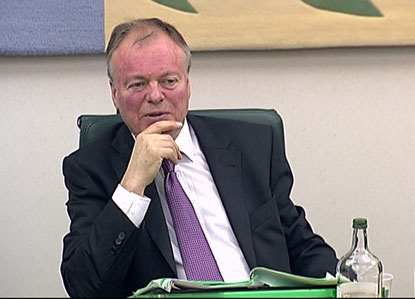By Richard Johnstone | 9 June 2011
The government’s plans for localism have so far cut out councils and threaten to fragment local public services, MPs are warning.

In a report published today, the communities and local government select committee says ministers have yet to produce a ‘compelling vision’ of what greater decentralisation will look like, and idea has not been backed across Whitehall departments.
Instead, the government has implemented a policy of ‘guided localism’, in which ministers continue to retain significant powers over local government. The MPs say that a clear dividing line will need to be drawn between local and central government to stop ‘unwarranted interference from ministers in local affairs’.
Committee chair Clive Betts said ‘the government has to be clear about what type of localism it wants to pursue’ as some departments ‘appear to have been granted an exemption from decentralisation’.
In its inquiry into the localism plans, the committee heard from councils that the Department for Work and Pensions was resistant to the idea, despite an ‘eagerness [from] local authorities to be more involved in shaping the response to worklessness in their area’.
This lack of commitment from other central departments had made the committee question whether the Department for Communities and Local Government had the ‘capacity’ to exert influence within Whitehall, Betts said.
He added: ‘Most government departments have adopted whatever definition of “localism” suits their aims, and some key areas of policy remain notably more centralised than others.’
The report calls for decentralisation minister Greg Clark to be moved from the DCLG to the Cabinet Office if progress towards ‘coherence, rigour and clear priorities’ cannot be made.
The committee also says that some high-profile examples of localism – elected police commissioners, free schools, academies and health service reform – have circumvented rather than empowered councils.
These reforms are creating ‘a parallel democratic structure’ for policing, while schools are to be further removed from council control. Taken together, these reforms risk ‘fragmenting’ accountability, the MPs say.
Localist reforms might also cost more. The committee says localism should not be adopted purely as a way to curb public sector costs, not least because the loss of efficiencies of scale means services might not be cheaper.
The government must decide ‘what it wants the role of local authorities to be’, the report says. However, it also warns that the councils need to become more accountable.
‘Local councillors will need to work harder to improve accountability to local people, but the government should not be seeking to dictate methods of local accountability from the centre,’ Betts said.
Conservative committee member George Hollingbery said there was a ‘responsibility for local government to react to the change’.
He added: ‘There was a lack of ambition from local government for what they could do. I want to charge them to bid for more services, to do more.’
Local Government Association chair Baroness Margaret Eaton said the committee’s report was ‘bang on the money’.
She added: ‘The committee is spot on to remind ministers they cannot have it both ways, devolving powers but telling councils how to use them.
‘Councils still
feel that the government wants them to play entirely by its rules.'
Decentralisation minister Greg Clark said that the government had already made ‘real progress’ in shifting power from central government to local government by ending ring-fencing of some funds.
Saying that the government would ‘look carefully’ at the report, he added: ‘The government believes decentralisation should go beyond transferring power from central government to local government, important though that is. ‘There should be a double devolution of power from central government to local government and to people and communities.’





















